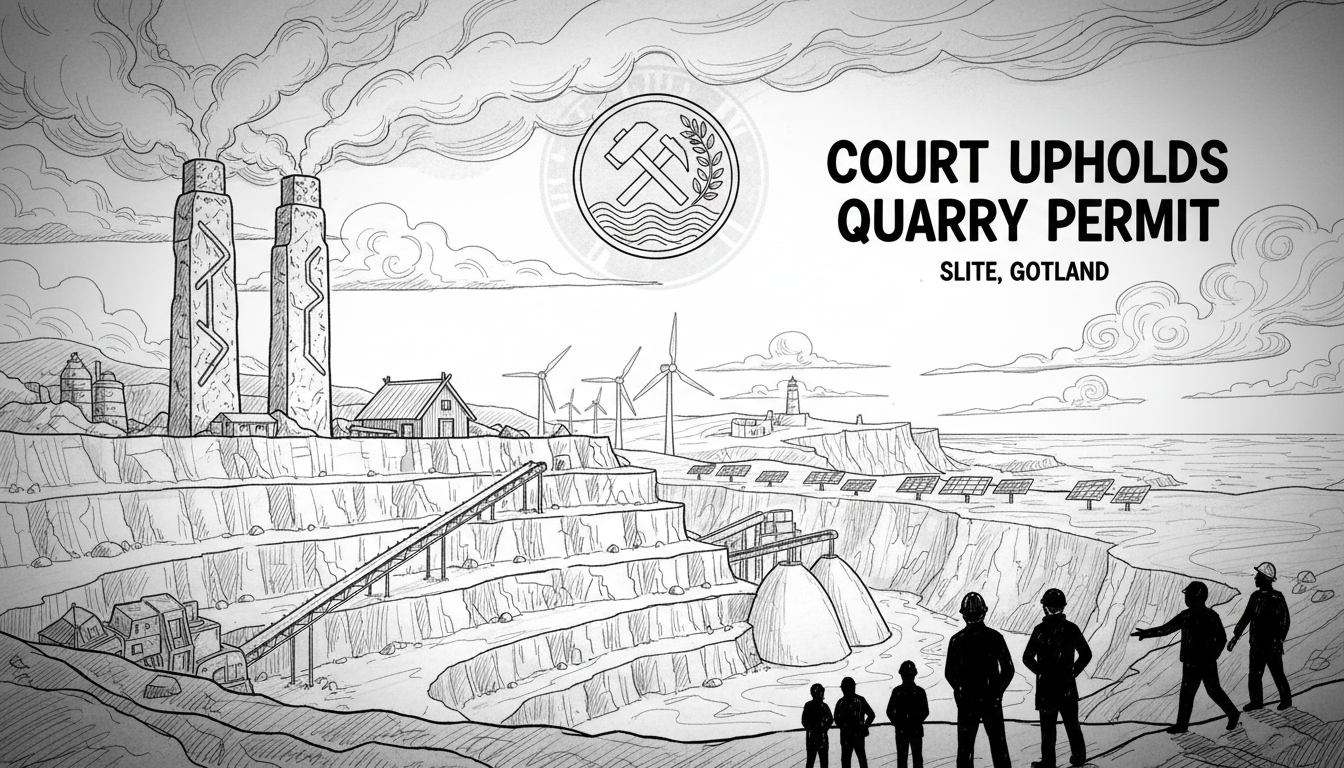A Swedish court has definitively blocked attempts to challenge Heidelberg Materials' 30-year mining permit for its Slite limestone quarry. The Land and Environment Court of Appeal refused to hear the case, ending a prolonged legal battle over cement production on Gotland.
Heidelberg Materials, formerly known as Cementa, secured its original permit in May. The company can now continue limestone extraction for three decades. Karin Comstedt Webb, deputy CEO of Heidelberg Materials Sweden, emphasized the permit's importance in a statement. She said the decision ensures Sweden's domestic cement supply and national preparedness. It also enables continued investment in the facility's climate transition work.
Private landowners and the environmental group Urbergsgruppen appealed the initial ruling. Their challenge sought to overturn the 30-year operating permission. The higher court's refusal to reconsider the case represents a significant victory for industrial interests.
This dispute over limestone mining has created substantial tension on Gotland island. The conflict pits economic development against environmental concerns in a region known for its natural beauty. Local communities have debated the quarry's impact for years.
Sweden's construction industry depends heavily on domestic cement production. The Slite facility provides essential materials for infrastructure projects nationwide. Without this quarry, Sweden would need to import more cement, increasing costs and environmental impacts from transportation.
The court's decision comes as Sweden accelerates its climate transition. Heidelberg Materials has committed to transforming the Slite plant into a carbon-neutral facility. This requires substantial investment that depends on long-term operational certainty.
Environmental groups argue that extended mining permits conflict with climate goals. They question whether heavy industry can genuinely achieve carbon neutrality while expanding extraction activities. The tension between immediate economic needs and long-term environmental sustainability remains unresolved.
Gotland's unique geography and ecology make mining controversies particularly sensitive. The island's limestone deposits are valuable resources, but residents often prioritize preserving natural landscapes. This case illustrates the ongoing challenge of balancing industrial needs with environmental protection across Sweden.
The definitive nature of this ruling provides clarity for all parties. Heidelberg Materials can proceed with its operational plans and climate investments. Environmental groups must now consider alternative strategies if they wish to continue opposing the quarry's expansion.

